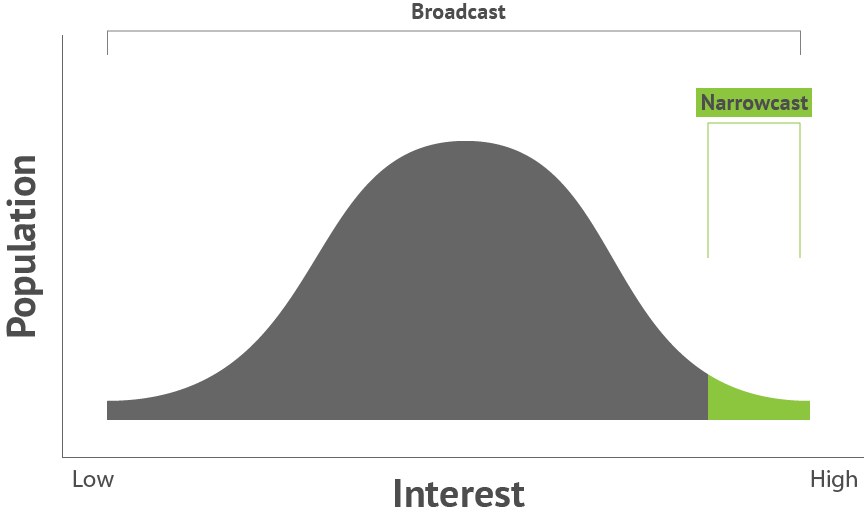Back To The Future – The Return Of Narrowcasting
Do you remember how advertising used to work ? If you sold computers you advertised in computer magazines, if you sold fashion you advertised in fashion magazines. Once upon a time, back in 2002 I created a company that aimed to use this model to target narrowcasting TV channels over the internet.

